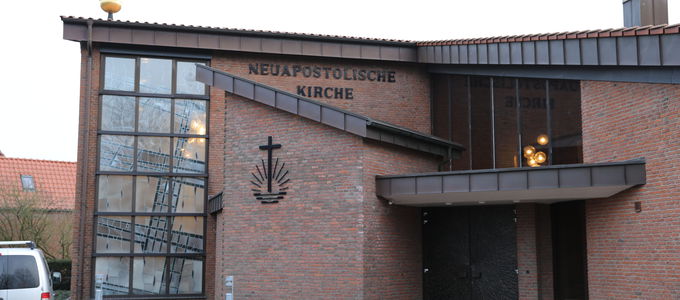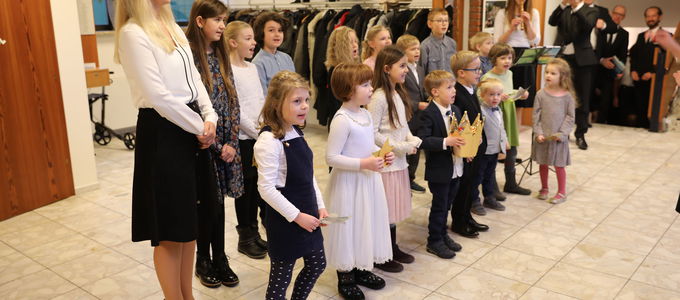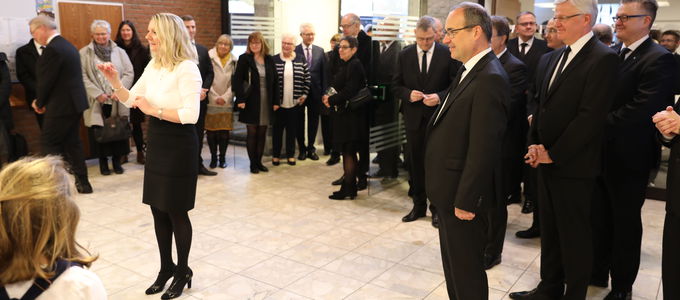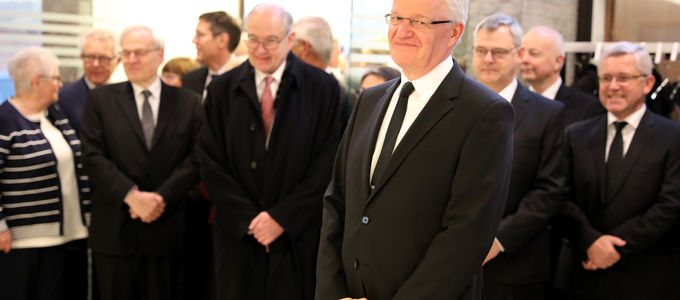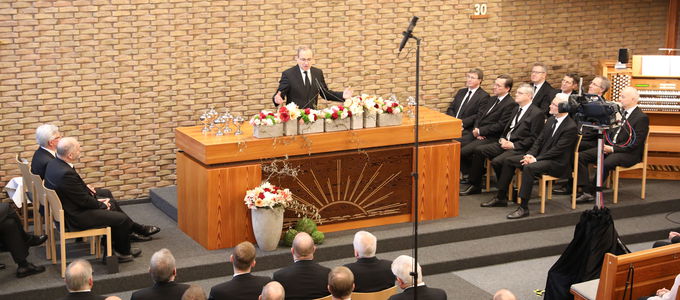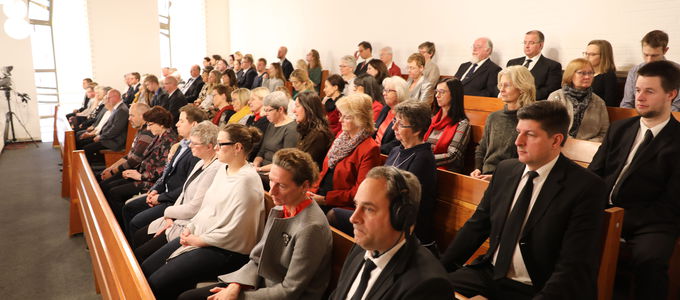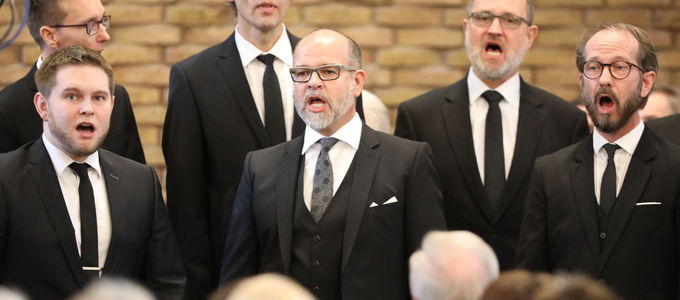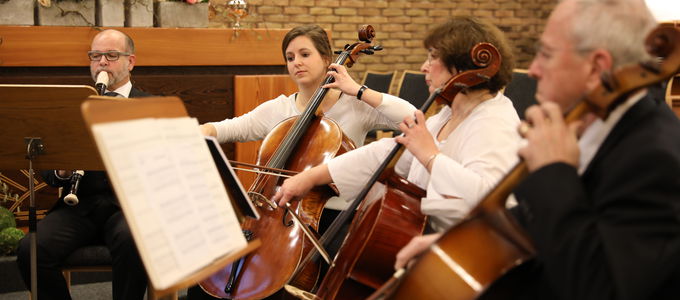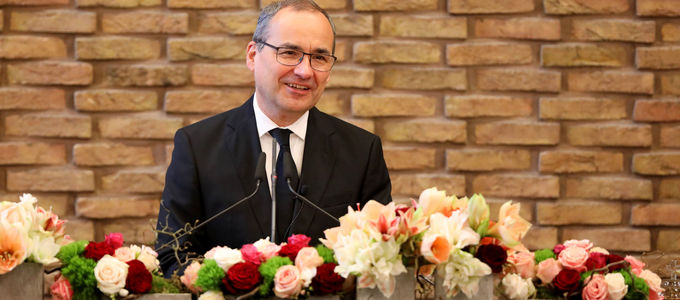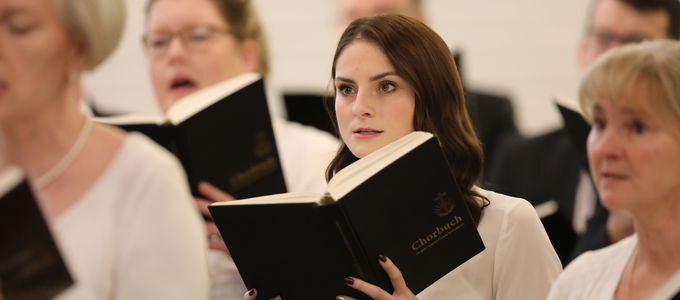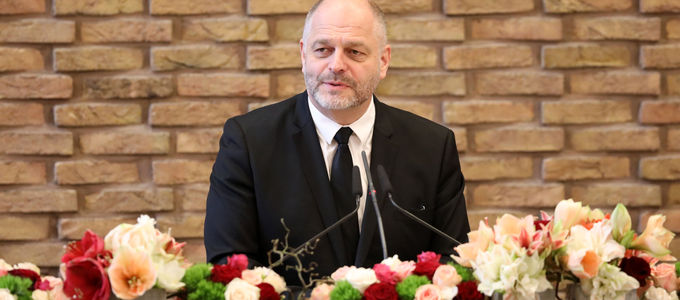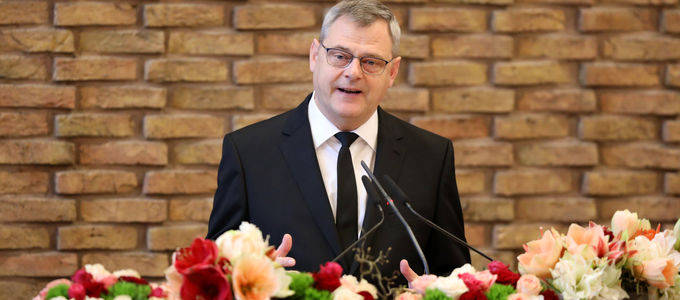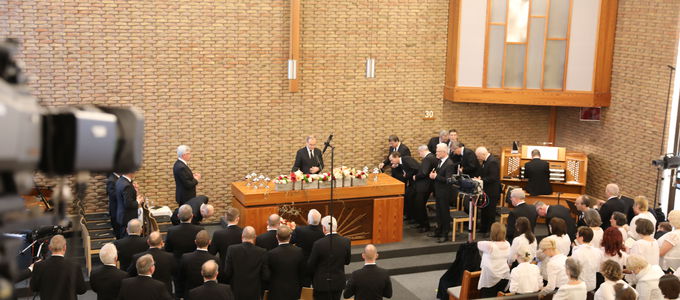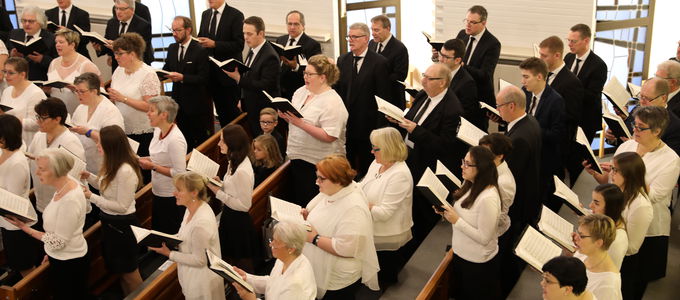
Looking back and taking stock — all on our own or in a larger circle instead? “Let us do this together in the congregation,” said Chief Apostle Schneider. An invitation to take thought and give thanks.
On Sunday, 29 December 2918, Chief Apostle Jean-Luc Schneider celebrated a divine service in Stade, Germany. He based his sermon on Psalm 40: 5, which states: “Many, O Lord my God, are Your wonderful works which You have done; and Your thoughts toward us cannot be recounted to You in order; if I would declare and speak of them, they are more than can be numbered.”
O Lord my God!
“When we look back and take stock of the works of God, we must first of all become aware of who this God—in whom we believe—actually is,” said the Church leader by way of introduction. “Our God is a God of fellowship, the fellowship of the Father, the Son, and the Holy Spirit.”
- The Father: “All good things come from Him. He is the almighty Lord. God, the Father is the God of love.”
- The Son: “We believe in the Redeemer. All those who trust in Him will be delivered, justified, and redeemed by Him.”
- The Holy Spirit: “The invisible God can be perceived by human beings through the activity of the Holy Spirit. God, the Holy Spirit is a power. He is the Comforter and Helper.”
Recognising the miracles of God
The miracles of God can be perceived in many different ways, explained the Chief Apostle:
- the beautiful things that happen in the congregation: “Here I am reminded of the various gatherings, such as youth weekends, divine services, and festive divine services.” All of these are miracles, things that amaze us. But here it is important to remember: “This is not the success that results from our work, effort, gifts, or strengths—this comes from God!”
- the unconditional love of God: “I had resolved to do so much, and have not nearly done it all,” but “God simply continues to love me. He simply accepts us human beings as we are. That is the miracle of the love of God.”
- the wealth of God’s word: “The word produces so much! It helps the suffering, the young people, the elderly, the poor, and the rich alike. This is a miracle we can experience again and again!”
- the nearness of God to human beings: “It is particularly those who find themselves in great need—the poor, the persecuted, the refugees, those who are seriously ill—who feel the nearness of God most keenly. — This is the miracle we experience in affliction, in tribulation, and in difficulties. That is our God!”
- the power of the Holy Spirit in a human being: “Brethren who have the greatest difficulties, who are in impossible situations—it is often precisely these brothers and sisters who carry on, who keep on offering, who keep on loving. That is the miracle of the power of God. We can experience this for ourselves.”
Endeavouring to apprehend the thoughts of God
“The thoughts of God are so great that we cannot always understand them,” explained Chief Apostle Schneider. But here too, a look back is worthwhile.
- When things go differently than we expected: “God allows evil. He permits it. But He is so great that He can even make use of the evil one in order bring about good things.”
- God is powerful in the weak: “Indeed, we at times have our problems with that. After all, it would be so much easier if we were all perfect, if we did not have so many imperfections.” However: “He wants to be strong in the weak in order that all the glory and praise may come to Him and not to man.”
- Becoming even better acquainted with Jesus Christ: “We human beings always think, ‘Well, we actually know enough now—and what we are now is actually not all that bad,’” but the Holy Spirit prompts us to continue developing: “No, we cannot remain as we are. We must move forward. Our knowledge must still grow. We must come still closer to Jesus Christ.”
- Deliverance through faith and trust: “This is something very important—I would like to underline this again and again: faith does not merely mean: ‘Yes, I believe that this is true.’ To believe is also to trust. We trust in God, the Father, the Creator, who does all things well, and who desires to lead us into fellowship with Himself. He is with us. He desires to save us.”
- God is at work every second: “We do not even know how often God has helped us. God has given us so much and we do not even know how to properly appreciate it.” And the greatest thing of all: “He is preparing a wonderful future for us. He has prepared an inheritance for us.”
The Chief Apostle’s conclusion: “We praise God for the riches He has granted us. We trust in Him. He desires our salvation!”






